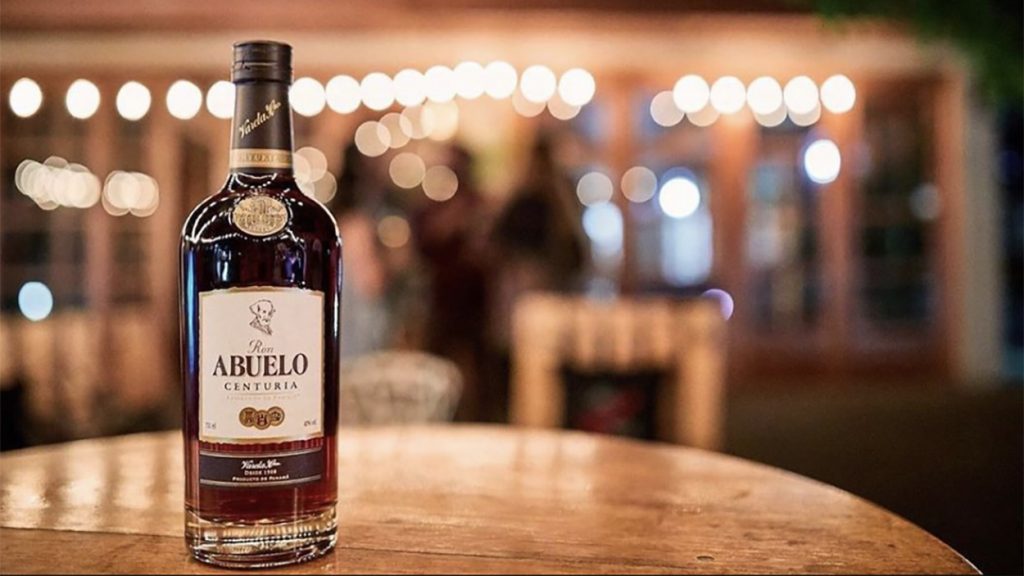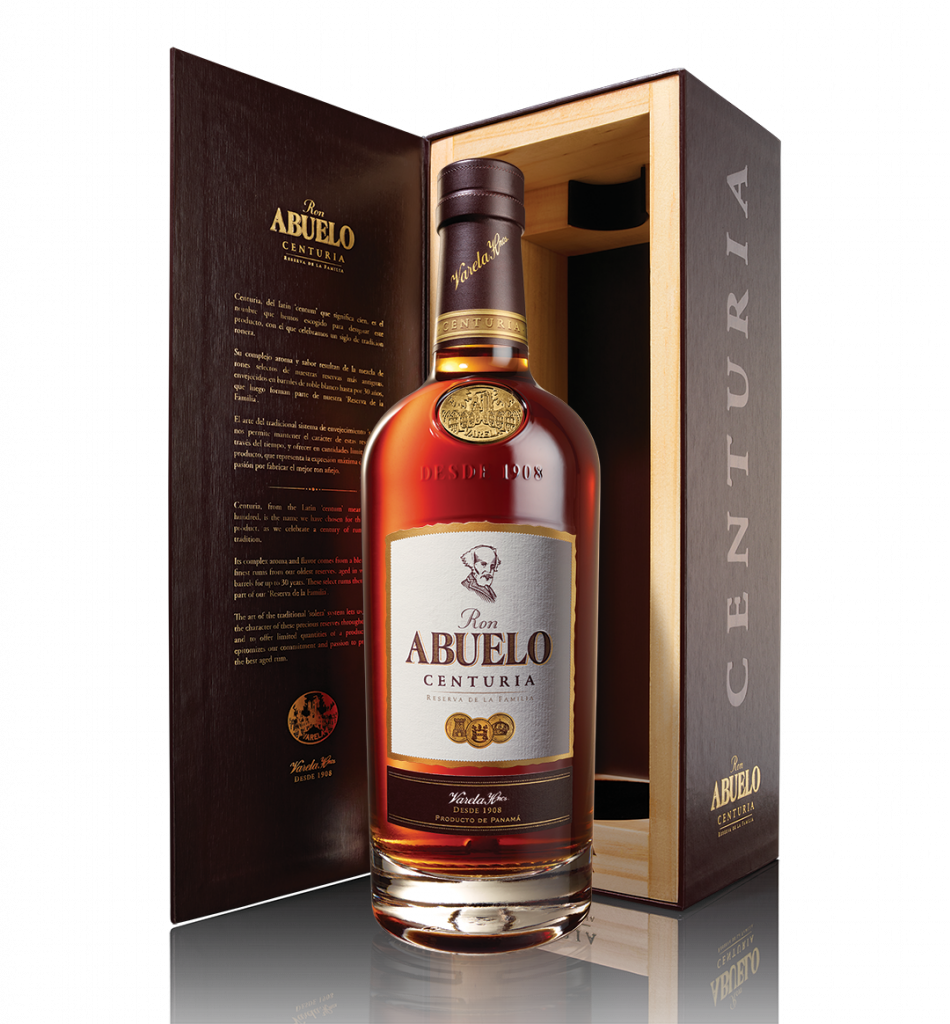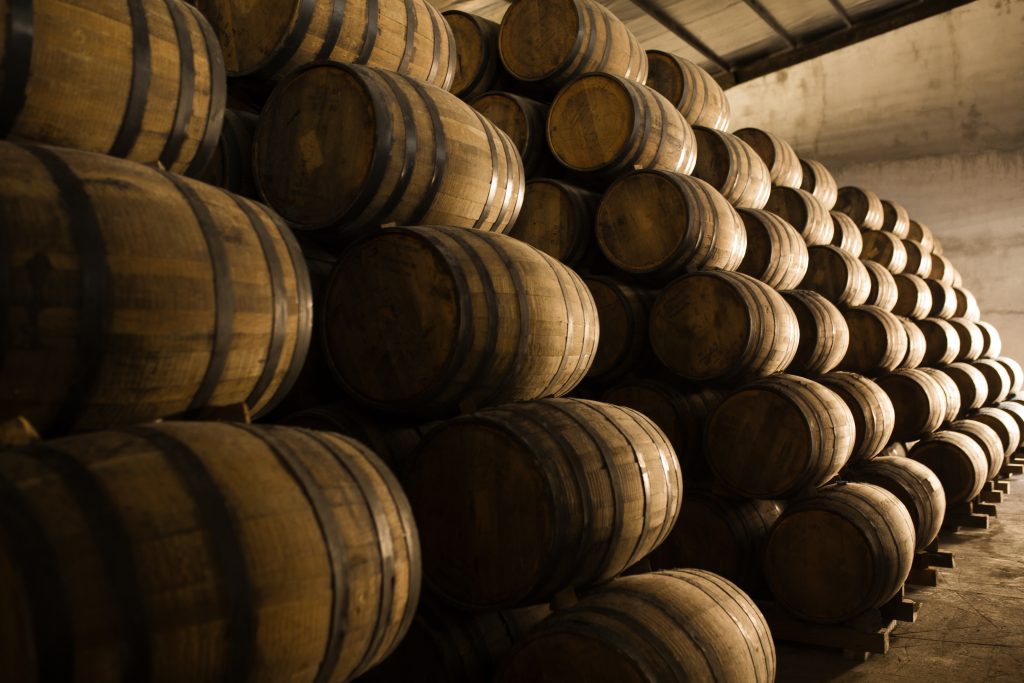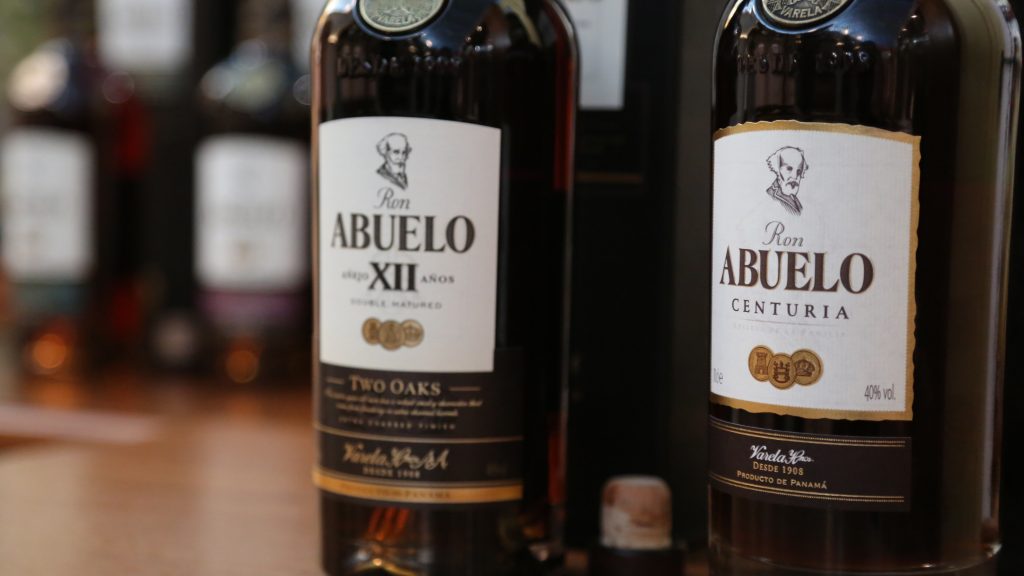Rum is in the midst of a renaissance. Once the overly sweet and fiery addition to grog and other tiki cocktails, the spirit has blossomed into one of the most refined on the planet with unique expressions coming from across the globe. Ron Abuelo is one of the crown jewels of the Rum world, and the Centuria is their pièce de résistance.
Ron Abuelo hails from Panama, they produce their Rums in Pesé, a small fertile valley in the Azuero Peninsula. In 1908, the company’s founder, Don José Varela Blanco. arrived in the recently formed Republic of Panama from Spain and established the country’s first sugar mill. Ron Abuelo Centuria was created to celebrate the brand’s 100th anniversary.
In this week’s Bottle Breakdown, we sat down with Ron Abuelo Global Brand Ambassador Cristobal Srokowski to discuss Centuria, the history and craftsmanship that goes into every bottle, and the unique terroir of Hacienda San Isidro.

SZ: Just to get started, what was your first experience with Rum? And how does that memory impact the way you view Ron Abuelo Centuria?
Cristobal Srokowski: I first began to learn about cocktails when I was 18 years old and this first experience included an amazing spirit from the Caribbean, rum. I was hooked and became passionate about the category. I was particularly enamored by how versatile rum can be – perfect for almost any kind of drink – fruity, sour, bitter, spicy and many other combinations.
Trying Ron Abuelo Centuria was (and is) a very exciting journey. Behind each sip there is an infinite world of hidden aromas. Centuria needs time to be enjoyed properly. The first time I had the chance to try the bottling was at a very well-known place in Barcelona where I was a bartender, Harry’s Cocktail Bar. I remember waiting almost 40 minutes, to let the rum open up, and there it was – this buttery pecan taste that made me fall in love with Centuria.
SZ: For those of us who are unaware, can you tell us about where Ron Abuelo gets its sugarcane and how the terroir can be found in the flavors and aromas of the Rum?
CS: The rums of Ron Abuelo are produced in Pesé, which is a small fertile valley in the Azuero Peninsula. The cane used to create the rums benefit from the region’s singular terroir; the hacienda is blessed with a rich mixture of volcanic soil and clay, and a microclimate unique to the estate. Moderate rainfall, cool nights, and humid days all play important roles in the development of the cane the family cultivates. Currently, there are between 8-10 types of cane grown, each adapted to the soil and climate variations within the estate. Varela Hermanos controls 100% of the rum-making process: they grow and harvest 1,668 hectares of sugarcane (without setting fire to the fields, a practice commonly used), distill their own spirit, and age it all onsite at the Hacienda.

SZ: Varela Hermanos is one of the few distilleries to produce Rum from molasses made from sugarcane grown on its own estate. How does that make a difference in the final product and what does it allow you to do differently than other Rum makers?
CS: The rums of Ron Abuelo are created by blending two distinct styles of rum distillates: a light, clean rum distilled from cane juice to a higher proof and an aromatic base rum with bold, exotic flavors distilled from molasses. These two rums are combined to create Abuelo’s deeply nuanced and complex benchmark rum. Because we control 100% of the rum-making process, it allows us to ensure a meticulous production process from cane to bottle. One of our biggest strengths is the possession of our very aged rum stocks, which allow us to offer amazingly complex and structured profiles across our portfolio. Rum production is very much about the small details and craftsmanship that takes place in every step. It’s also important to note that our final results, the profile of Ron Abuelo, can only be achieved at our Hacienda.
SZ: What kind of fermentation process does Ron Abuelo use and where do you get your water from?
CS: Our fermentation takes place for 48 hours (medium) using a continuous controlled system and in-house-raised distiller yeast, which is known as ‘pineapple’ type. Ultimately, this creates a beautiful and compelling wine (ready to be distilled) between 7 – 8% vol. with a very interesting amount of congeners. We ferment molasses for our complex rums and sugarcane juice for our light rums, which provide the bedrock of all the rums in our Ron Abuelo Family. We currently have 14 natural wells for water at “La Hacienda,” six of these are used for alcohol production.
SZ: Ron Abuelo Centuria was produced in honor of the Varela Hermanos 100-year anniversary. Can you tell us about the beginnings of the brand and how you distilled that history into the bottle?
CS: There is a lot of history here, which goes back well over a century. In 1908, Don José Varela Blanco arrived in the recently formed Republic of Panama from his home country of Spain and established the country’s first sugar mill in Pesé. He formed the family-owned company Varela Hermanos, SA (today run by the third generation, Luis J. Varela, Jr.) and by the mid-thirties, the family was distilling cane into spirits. The first bottle of rum introduced under the Ron Abuelo brand was produced in 1956 at their Hacienda San Isidro, which is where the rums of Abuelo are still produced today. Centuria was produced to celebrate the 100th anniversary of Varela Hermanos; the limited release was introduced to the market by the Varela family in 2011 and it honors the history and tradition of Panama’s oldest distilling family and operating distillery. Each year a limited number of bottles are released, offering spirits collectors and enthusiasts special access to the family’s private reserves, which were used to create Centuria. This is truly a taste of one family’s legacy.

SZ: Centuria draws from 12- and 42-year-old family reserves that are aged in American whiskey barrels using a solera system. Can you tell us about the selection process and the qualities you look for when choosing the rums that go into the final blend?
CS: The traditional solera system, which was born in Jerez de la Frontera in Spain, is the art of blending younger reserves with the oldest, to keep the exceptional balance between character and smoothness. We carefully select our best 12-year-old rums to start on the top and step-by-step enrich this rum with our precious family reserves. The reason is always the same: finding unique equilibrium between the spirit’s character and woody smoothness that allows us to present to the world our sublime final blend, which is Centuria. We carefully control the evolution of this solera by tasting each barrel monthly to ensure the family’s high standards of rum craftsmanship are kept intact at all times.
SZ: Why do you use American Whiskey barrels and how do they impact the final product?
CS: American oak has a lower quantity of tannins versus French oak and this gives us smoother results. In addition, this type of barrel provides a very unique, dried fruit and “nutty” flavor. The American whiskey barrels also impart a particular flavor of vanilla and raisins, this helps keep our family of rums well-rounded.
SZ: Some Rum producers use the Solera method, others do not. What are the advantages of the Solera method and where can you find their influence when drinking a bottle of Ron Abuelo Centuria?
Using a solera system to age rum is very labor intensive, but the reward is unmatched if you have the patience and attention to detail. By aging via solera, we ensure that the character of these precious reserves is well-maintained over generations.
SZ: It is clear that Ron Abuelo Centuria is a truly special Rum. But what makes it so unique and different from other Rums in your eyes?
CS: First of all the rums of Ron Abuelo are very special. While rum is produced in many regions around the world, Pesé provides very unique climatic conditions unmatched anywhere else. This means that in addition to our singular terroir, our rums evolve much quicker than in other locations and experience between 8-15% angel’s share each year, so you can understand that we are blessed to be working with liquid that is very developed. So, while Centuria may use a blend of rum aged between 12-42 years old (averaging out at 30 years old), these rums drink like far more mature spirits – and of course, this is very special as well. The rums are very carefully selected for this exceptional blend. Our aging process also plays a very large role in Centuria. At the Hacienda, we have one warehouse dedicated to a solera aging system, which is very labor intensive – this is where we age Centuria. There are only 7200 barrels, which means Centuria is very limited.
SZ: How do you recommend enjoying Ron Abuelo Centuria and what should be paired with it?
CS: Centuria is a beautiful sipping rum and while we encourage consumers to savor this selection neat or perhaps with a cube ultimately, we want people to enjoy in whatever way brings them the most pleasure. Centuria delivers a smooth and rounded texture, rich with layers of complex aromas and flavors that make this spirit truly unforgettable and appreciated by rum enthusiasts and spirit collectors around the world.
If you want to enjoy your Centuria with food, on the savory side I suggest pairing this rum with Chateaubriand in a muscat reduction, an aged steak with truffle salt is especially wonderful, or crunchy, smoked sardines with butter and Provencal herbs is delicious. For those who prefer something sweet, you might consider a dark chocolate (85%) mousse, a ‘coulant’ (hot cake) with walnut ice cream, or even a pecan and chocolate cake to highlight the buttery and nutty flavors of Centuria.




